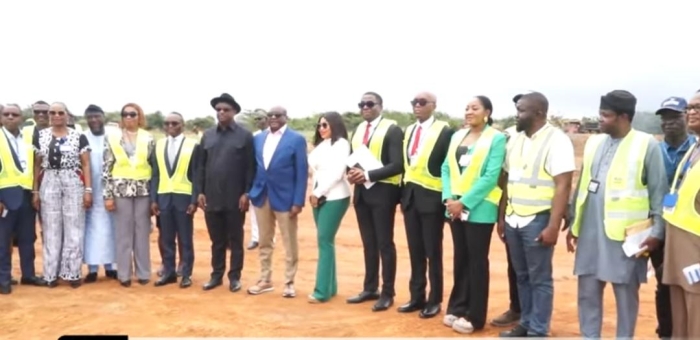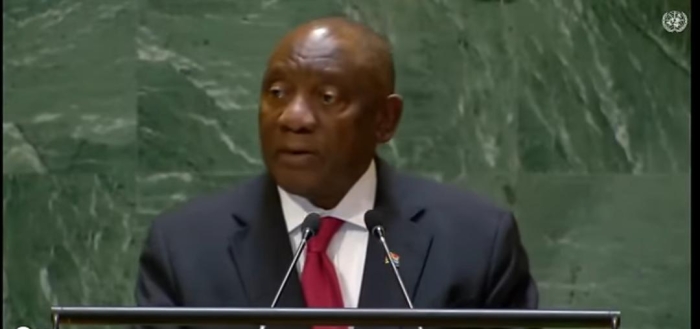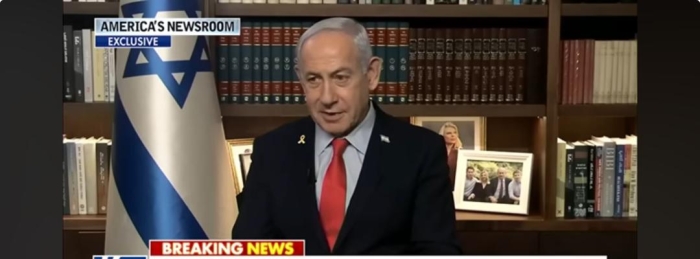According to multiple persons acquainted with the negotiations, the United States and Iran have agreed to liberate five American prisoners in exchange for the detention of several Iranians and access to around $6 billion in Iranian oil money in the future. Iran has released five Iranian American dual citizens into house detention as a first step in the arrangement, which comes after more than two years of covert discussions, according to representatives from the State Department and the National Security Council.

Secretary of State Antony J. Blinken stated on Thursday that "this is just the beginning of a process that I hope and expect will lead to their return home to the United States." To bring them home, additional effort has to be done. I think that this is the beginning of their nightmare's end. The detainees include two more whose families suppressed their names and Siamak Namazi, Emad Sharghi, and Morad Tahbaz, who had all been imprisoned on fictitious allegations of spying. Two persons informed on the release's preparations said that one of the anonymous Americans is a scientist and the other is a businessman.
The three indicted prisoners and one other person were moved from Evin Prison, one of Iran's most notorious prisons, to a hotel in Tehran, the country's capital, on Thursday. According to Jared Genser, Mr. Namazi's attorney, they will be held there for a few weeks before being allowed to board an airplane. According to multiple persons acquainted with the plans who spoke on the condition of anonymity to discuss the final agreement, one other prisoner, an American lady, had already been freed into house arrest.
In a statement, Mr. Genser remarked, "While I hope this will be the first step to their ultimate release, this is at best the beginning of the end and nothing more." But there are just no assurances as to what will occur next. He said that Iranian authorities had informed the Americans that they would be confined at the hotel under watch. Iran's deputy foreign minister and principal nuclear negotiator, Ali Bagheri Kani, said that the United States and Iran had achieved an agreement for the release of Iranian assets worth billions of dollars in exchange for the exchange of prisoners.
He said that the US has given Iran the "commitments necessary" to uphold the agreement. According to IRNA, the official news agency of Iran, five Iranians will be freed from American jails in return for the release of five Americans. Iranian media portrayed the agreement as a win for President Ebrahim Raisi's conservative administration and referred to it as "honorable diplomacy."
Officials from the Biden administration declined to disclose or confirm specifics of what Iran will receive in return. But according to some who are acquainted with the deal, the Biden administration would free a few Iranian citizens who are currently serving jail terms for breaking sanctions on Iran once the Americans are permitted to return home.
According to the persons familiar with the agreement, the US would also transfer almost $6 billion of Iran's current assets located in South Korea and deposit the money into a Qatari central bank account. According to them, the Qatari government would be in charge of the account and supervise it so Iran may only use the funds to pay suppliers for humanitarian expenditures like food and medication.
The Biden administration has orchestrated several high-profile prisoner exchanges to return Americans that the State Department believes are unlawfully jailed abroad. The most recent one included Iran, a bitter American enemy. The 51-year-old Mr. Namazi has been detained in Evin Prison since 2015 on allegations of "collaborating with a hostile state." He was handed a 10-year term. A businessman named Mr. Sharghi was found guilty of espionage and given a 10-year jail sentence in 2020. The environmentalist Mr. Tahbaz, who was detained in 2018, received a 10-year sentence for allegedly having "contacts with the U.S. government."
The three have all refuted the accusations, and according to the US, they were all illegally jailed. Siamak's brother Babak Namazi issued a statement in which he said, "We have suffered tremendously and indescribably for eight horrific years and wish only to be reunited again as a family." In a statement sent by their attorney, Neda Sharghi, Emad's sister, stated, "My family has faith in the work that President Biden and government officials have undertaken to bring our families home and hopes to receive that news soon."
Officials in the Biden administration do not think that there are any additional Americans detained in Iran. According to a statement from his family at the time, in 2020, authorities in President Donald J. Trump's administration concluded that Robert A. Levinson, the former FBI agent who vanished in Iran in 2007 while on an unapproved assignment for the C.I.A., passed away while in an Iranian prison.
According to two Iranians close to the regime who were acquainted with the plan, the prisoner exchange deal that would take place on Thursday was almost finished in March but was put on hold when Iran jailed one of the unidentified U.S. dual citizens. The two Iranians said that Iran originally opposed the United States demand that the prisoner be included. The final agreement took shape in recent months, according to people with knowledge of the discussions between the United States and Iran, which were mediated by Oman, Qatar, and Switzerland. All parties had been working on the logistics for weeks.
According to Ali Vaez, the Iran director for the International Crisis Group, a conflict prevention organization, who is familiar with the terms of the deal, this exchange will take place in a series of planned steps as opposed to prior prisoner swap agreements where detainees immediately boarded a plane out of Iran. The Americans will be permitted to leave Iran once the money is deposited in the Qatari bank account, which is anticipated to take four to six weeks due to the difficulty of obtaining the necessary licenses and sanctions exemptions documentation.
Due to the crucial role Qatar played in brokering the arrangement, the prisoners are anticipated to be flown to Doha, the capital of Qatar, aboard a government aircraft, he added. The jailed Iranians in the US are also permitted to go to Doha for the swap. However, because many of them reside in the United States with their families, it is uncertain if they would want to, according to Mr. Vaez. The Biden administration's readiness to transfer the enormous amounts of oil income stored in South Korea was a crucial component of the accord.
On Thursday, the anticipated delivery of the Iranian funds swiftly sparked debate. Republicans have opposed granting Iran immediate access to its frozen financial assets, which might end up in the hands of its elite military force, the Islamic Revolutionary Guard Corps, and be used to finance and arm extremists throughout the Middle East. President Barack Obama reached a compromise with Tehran in 2016 on a $400 million arms purchase in exchange for the release of four American Americans who were jailed in Iran. Republicans criticized the deal and the closure of talks to restrain the nation's nuclear aspirations, branding them as ransom payments, which Mr. Obama refuted.
The latest agreement with Iran was denounced on Thursday by the former vice president and Republican candidate for president Mike Pence as "the largest ransom payment in American history to the Mullahs in Tehran." Mr. Pence said on X, previously known as Twitter, that "China and Russia, who are also holding Americans hostage, now know the price has just gone up."
According to those who are aware of the financial arrangement, the transfer to provide Iran access to its cash for humanitarian purposes is neither a ransom payment nor unusual. Despite U.S. sanctions that prevented it from using the money for most purposes, Iran has established such accounts in more than a dozen other nations to take payments for the purchase of oil from those governments. Due to loopholes in the restrictions, Iran has been able to spend money held in Turkey, India, and other countries throughout the years for humanitarian purposes. According to Mr. Vaez, the Treasury Department spent several months making sure that the money could only be utilized for humanitarian causes.
“All Iran is allowed to do under this agreement is place orders through a bank in Doha for food, medication, and a small selection of medical devices without dual military and civilian use, according to Mr. Vaez. "The Doha bank would cover the purchase price, and Qatari firms would ship the commodities to Iran. Iran has absolutely no direct access to the money. "The Biden administration has a strong argument," Mr. Vaez continued. If you oppose this agreement, you are opposed to Americans returning home and to Iranians having access to food and medicine.
According to the Revolutionary Guards Corps of Iran's Tasnim news agency, the transfer of $6 billion from South Korea has already begun. According to people with knowledge of the conversations, Brett H. McGurk, the White House's coordinator for the Middle East and North Africa, met with representatives in Oman in early May to explore a prisoner swap with Iran. The development comes as Washington and Tehran struggle, despite great efforts, to resolve tensions resulting from Iran's developing nuclear program and tough U.S. sanctions.
Attempts to revive the 2015 Iran nuclear agreement, which President Donald J. Trump unilaterally ended in 2018, failed last summer after more than a year of negotiations. While in Oman, Mr. McGurk oversaw indirect discussions with Iranian officials to come to an informal agreement under which Iran would, among other things, cap its uranium enrichment to a level below that required to create a nuclear weapon and restrict its military aid to Russia.
In exchange, Iran would consent to the United States refraining from pursuing more punitive actions against it in international fora. Officials from the United States have long argued that negotiations on Iran's nuclear program are not directly tied to their diplomatic efforts to liberate imprisoned Americans. According to analysts, further Iranian advancements toward a nuclear weapon might lead to military action by Israel, the United States, or both nations. Iran insists that its nuclear program is for peaceful reasons alone and disavows any desire to develop a nuclear weapon. The Sultan of Oman visited Iran in late May to meet with Ayatollah Ali Khamenei, the nation's supreme leader. Those acquainted with the negotiations said that they contemplated a trade.
During his early years in office, Mr. Biden prioritized returning captives home. A human rights activist imprisoned in Rwanda named Paul Rusesabagina has freed in March thanks to American efforts. In return for Viktor Bout, a convicted Russian weapons dealer known as the Merchant of Death, Russia promised to free American basketball sensation Brittney Griner in December. Others, meanwhile, are still in custody. Evan Gershkovich, a reporter for the Wall Street Journal, was imprisoned and charged with spying by Russia in March. According to Mr. Biden, his government is attempting to secure Mr. Gershkovich's release.
The absence of the Biden administration's Iran ambassador, Robert Malley, who was placed on unpaid leave in late June awaiting a review of his security clearance, has hindered current diplomatic efforts against Iran. The review's justification has not been disclosed by the State Department.














